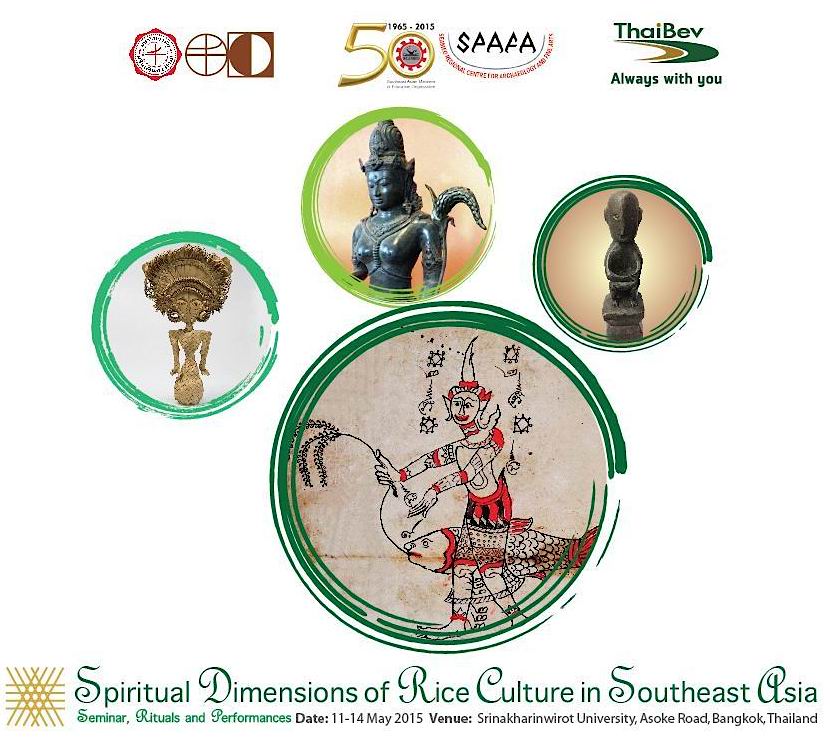
8 May, 2015
Southeast Asian Rice Cultures come to life in Bangkok
Bangkok – Performers and scholars from all over Southeast Asia will gather in Srinakharinwirot University, Bangkok, between 11-14 May 2015 for a special event celebrating the rice cultures of the region. The Spiritual Dimensions of Rice Culture in Southeast Asia looks beyond rice as an agricultural product and provides a glimpse into the importance of rice in the daily lives of Southeast Asian people.
 |
This special programme is divided into two parts. During the day, various international scholars will speak about topics such as different cycles of rice agriculture, music and ritual in the context of rice, and the UNESCO-recognised rice fields from Philippines and Indonesia. The keynote speech will be delivered by Dr. Lono Simatupang from Gadjah Mada University in Yogyakarta on the Rice Goddess in Contemporary Southeast Asia. There will also be a special screening of the award-winning documentary ‘Songs of Rice’ by director Uruphong Raksasad.
In the evening, a range of special public performances will feature troupes specially flown in for this event. Performance highlights include Wayang Kulit (leather puppet) and Reyog (giant peacock-feathered mask) performances from Indonesia, rice harvest rituals from the Ton’ak Ifugao people of the Philippines, and dedication rituals to the Rice Goddess from Ayutthaya in Thailand.
The seminar and performances are organized by the Southeast Asian Ministers of Education Organization Regional Centre for Archaeology and Fine Arts (SEAMEO SPAFA). Based in Bangkok and founded in 1978, SEAMEO SPAFA’s mission is to promote the archaeology, fine arts and performing arts of the region to the world.
“Rice culture is a basic shared culture of Southeast Asia,” said Director of SEAMEO SPAFA Dr. M. R. Rujaya Abhakorn, “so if we want to be an ASEAN community then we should start by understanding the different dimensions of rice culture.”
More information on the seminar programme and performances can be found at: http://tinyurl.com/ricecultures



Liked this article? Share it!